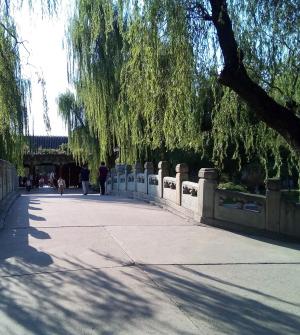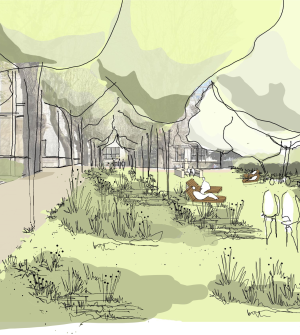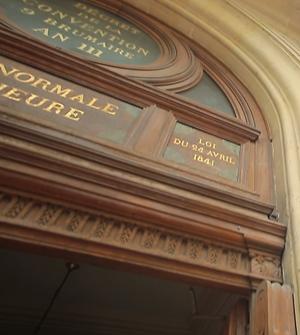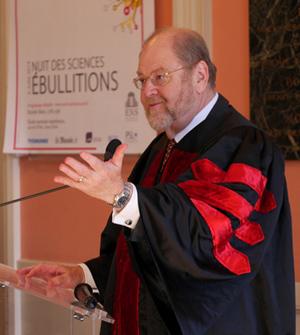A committed institution

A small-sized institution with great ambitions and commitments
The Ecole is committed to training its students by adding to disciplinary training other elements, such as research projects, multidisciplinary training, linguistic and international openness, and beyond the wall experiences – whether social experiences, teaching or internships. This broadening of education represents an essential and vital evolution for the ENS, which is very committed to allowing a large intellectual freedom while developing individual tutoring.
The Ecole normale supérieure has more than ever a leading role to play in knowledge dissemination towards the general public. Since 2011 the ENS opens its doors during large public events, such the Nuit Sartre in 2013, Nuit des Sciences in 2014, or Nuit des sciences et des lettres in 2016.
In the same vein, the ENS organises a seminar for its students which is also open to the public, dealing with Actualité critique (discussing the news with a critical point of view). This seminary aims at drawing cartography of current discourses.
In the same perspective, the ENS is developing its own policy of knowledge dissemination. Already launched by the Savoirs-ENS website, this policy now rests in particular on MOOCs (Massive Open Online Courses) realisation. MOOCs represent indeed a key issue for broadening the ENS’ influence.
The ENS is committed in the PESU programme, which aims at promoting the equality of opportunities in the French education system. Among PESU’s actions, the Talens programme consists in giving to high school pupils the opportunity to be mentored by normaliens. These pupils come from some high schools of Ile-de-France in which most pupils do not have the opportunity to undertake lengthy and prestigious studies.
Last but not least, the ENS is committed, whether on the inside or the outside, to addressing gender inequalities, in particular in scientific disciplines. The ENS aims to be a role model, thus highlighting the role of women in scientific teaching and research and contributing to deconstruct the phenomenon of women’s self-censorship. See the web series Place aux femmes scientifiques - NORMALE SUP’ S’ENGAGE).
As part of PSL Research University, the ENS is joining a part of the digital revolution, developing in particular digital humanities or launching digitisation of the existing libraries collections.

L’École normale supérieure a affirmé très tôt sa vocation internationale. Aujourd'hui elle ouvre ses départements et laboratoires à ses 200 partenaires universitaires dans le monde en accueillant chaque année plusieurs centaines de professeurs et de chercheurs étrangers.

L’École est engagée dans une démarche visant à ancrer le développement durable et la responsabilité sociétale dans les réflexions et les pratiques de sa communauté.
L'École s’est engagée institutionnellement dans les réflexions et l’action liées à l’égalité dans le système éducatif français avec la mise en place en 2011 d’une cellule dédiée à ces questions, le pôle PESU.

Créée avec l’aide de grandes entreprises en 1986, la Fondation de l’ENS est reconnue d’utilité publique la même année. La Fondation Meyer pour le développement culturel et artistique est née du désir de ses fondateurs, Philippe Meyer (1923 – 2009) et Vincent Meyer, de créer une entité philanthropique pérenne.
Créée en 1845 pour venir en aide aux archicubes dans le besoin, l’association des anciens élèves, élèves et amis de l’École (A-Ulm) accompagne aujourd’hui les élèves aussi bien dans leurs projets collectifs, qu’elle subventionne, que dans leurs projets personnels de formation et d’entrée dans la vie active.

Le titre de Docteur Honoris Causa honore "des personnalités de nationalité étrangères en raison de services éminents rendus aux Sciences, aux Lettres et aux Arts, à la France ou à l’établissement d’enseignement supérieur qui décerne le titre".
